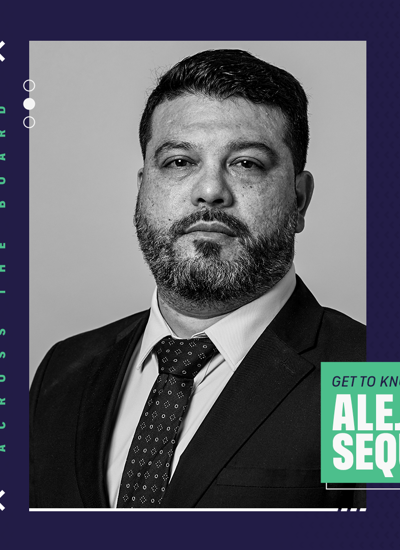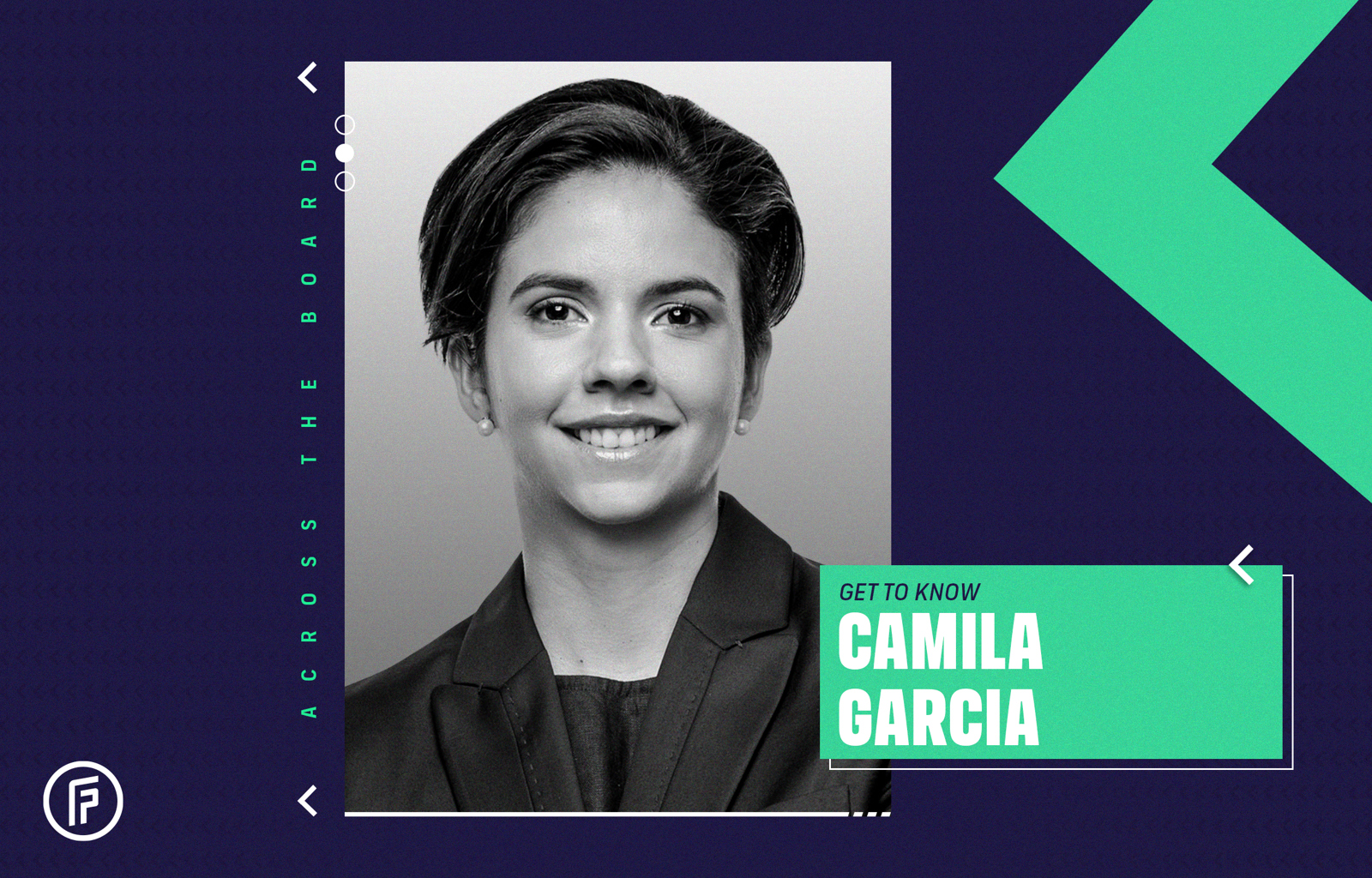
FIFPRO introduced an 18-person board, the most diverse in the global player union’s 56-year history, during its General Assembly in November 2021.
Across the Board aims to profile all 18 board members. Next: Chile's Camila Garcia.
Camila Garcia
• Former player at Universidad de Chile and Audax Italiano
• Director and founder of Chilean women players association (ANJUFF)
• FIFPRO Board Member since November 2017
• FIFPRO Vice President since November 2021
• Masters Global Policy, John Hopkins University
• Masters International Relations, Universidad de Chile
• Degree in Political Science, Diego Portales University
• Science, Innovation and Technology Attaché at Chilean embassy, Washington DC
How did you become director of ANJUFF?
Camila Garcia: I played football in my country at different clubs. After the games, my peers and I often got together and complained about how tournaments were held, about the conditions, and about our struggles. At some point we said: ‘Let's do something about it. Let's organize.’
It was an experiment. We didn’t have any example to follow, we were the first to organise women’s athletes. By luck, I connected with one of FIFPRO’s board members, Fernando Revilla, who by chance was visiting our country. I explained to him what the reality of the situation was in Chile, and that's how I got connected to FIFPRO. That's how everything started, with just the dream of a couple of friends who wanted to ‘do something about it’. And now, five years later, we have a law in Chile that is going to professionalise women’s football. That's something we never imagined.
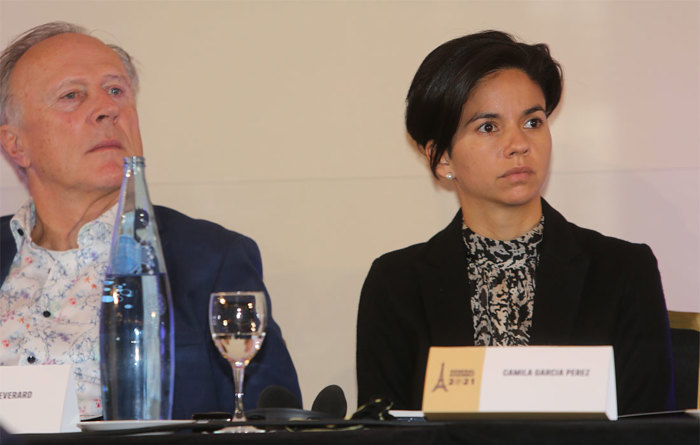
This law is a project that obliges clubs to provide women’s players with professional contracts. The government passed the law a few months ago. Is this your main accomplishment?
By far. It was a milestone for our country, our football community, and women all around the country. It had an impact not only in the football community. Our country needs that spark of social justice and gender equality. It was a good sign of how things should be going.
Five years ago, with the support of FIFPRO, we gathered South American players here, to talk about our realities and how we can help each other. It was amazing. Most of the players that participated there started or joined a movement in their country. It was Macarena Sanchez in Argentina. Some of the Colombian players started working with their union (Acolfutpro). In Brazil, it was the same. We have a WhatsApp group, and when the law passed, they were super excited about it and hoped that in their country something similar would happen to provide them with the right tools to fight for more equality.
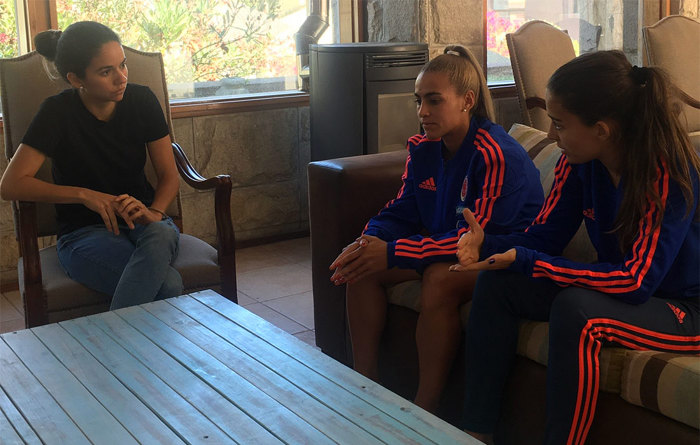
In 2017, you and Caroline Jonsson, were the first women to be voted on the FIFPRO board. What have you achieved since then?
It was very challenging at the beginning. We are talking about an organisation that at that point was just embracing women's football and its priorities. Our first goal was trying to be very strategic on what we pushed and what we didn't. We learned how to navigate that landscape internally and externally with our stakeholders and how to change the conversation on how we speak about women's football. It is not the half-brother or half-sister of men's football. It requires its own lens and its own data, instead of just copying everything from men’s football.
We were not on the board to only talk about women’s football, but we were on the board because of women’s football. Of course, I'm going to speak about everything. But every board member has priorities. We clearly had a mandate to support women's football. If people weren't talking about it in the meetings, we had to raise it. It was frustrating at the beginning, but I'm happy that we're now at that stage where my men's colleagues are aware and committed. It's an institutional shift in the organisation and it has made me very proud. I feel like we have done a great shift on how we look at the industry in general.
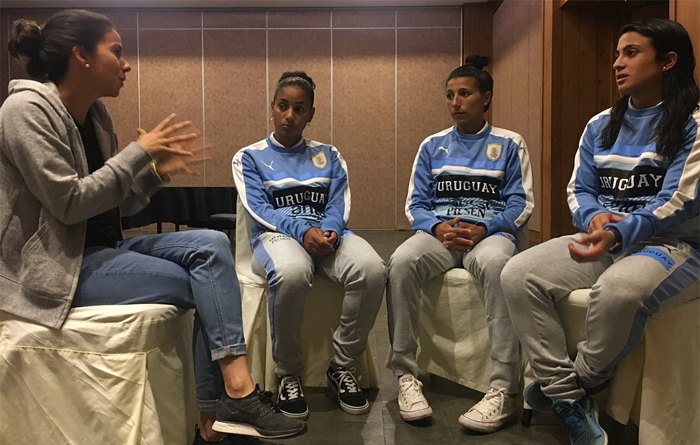
You want to work on relationships with stakeholders. Can you explain why this is so important?
In general, we all understand that sometimes it is not ideal how our industry is governed. So we should not only improve the relationships that we have, but also create new ones. It is important to leverage our position. When you have a position and you're the only one talking about it, then it's difficult. You need other partners with other perspectives. For example, when we tried to pass the law in Chile, it initially didn't matter that we talked about it. But then we partnered with a university that supplied us with the data that we could use to talk about with Congress people, which clearly improved our conversation. With FIFPRO we are doing this too, on the international level, talking with NGOs and United Nations, partnering with consultancy firms, universities and other stakeholders that help us improve our position. That's key to drive the conversations more easily.
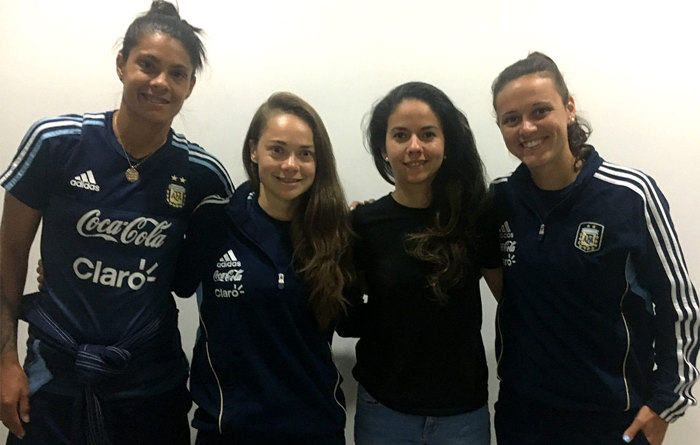
How do you think FIFPRO can best improve the conditions of players?
I think we need to strengthen the ability of our unions to support their players. In our country, for example, we were able to pass a law to professionalize women's football. Maybe that's not possible yet in other countries, but we can improve that. I noticed that, at least in women’s football, players don't realise how strong their collective power is. So imagine what we could do if we could organise them and give them the tools to fight nationally for their rights and equal opportunities. If we can find a way to strengthen the collective power of players, probably we're going to see a change in, five or ten years that we haven't seen right now.


